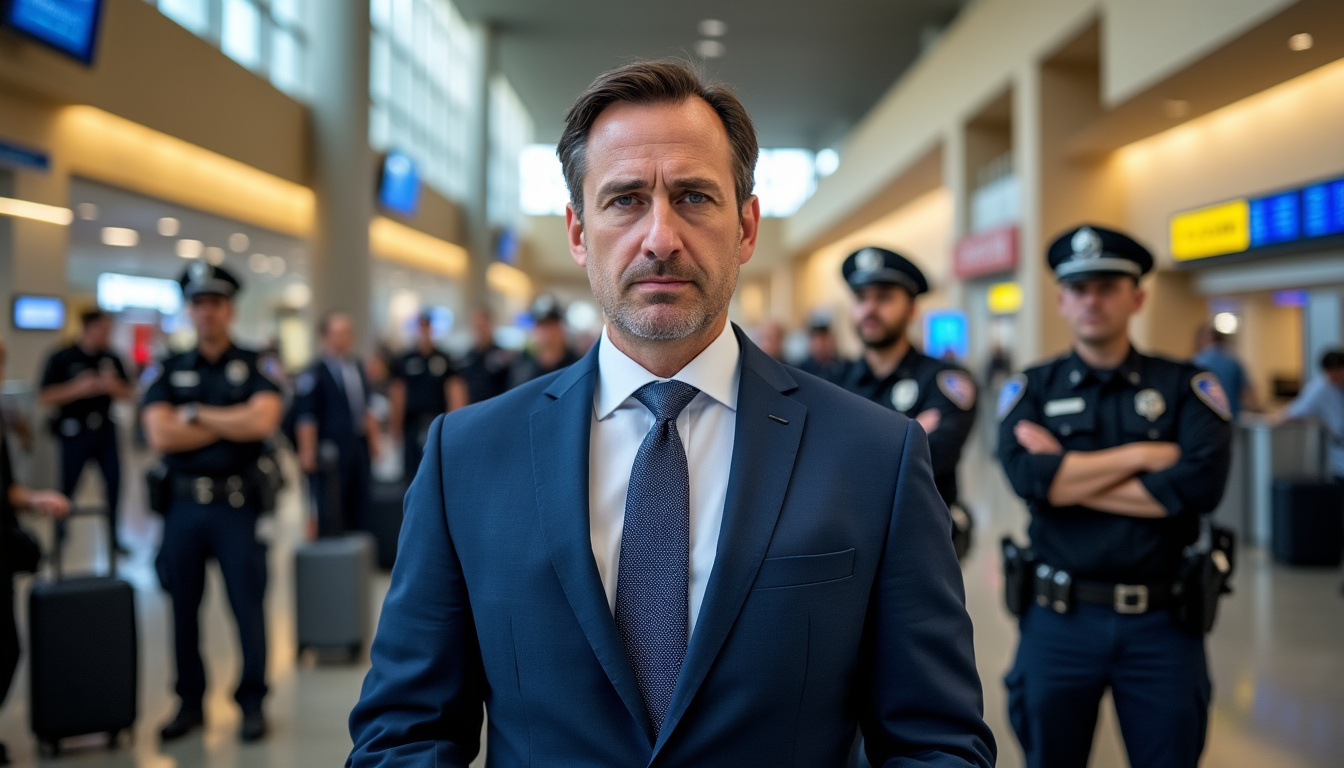Chris Krebs, former director of the Cybersecurity and Infrastructure Security Agency (CISA), recently lost his Global Entry membership, an expedited travel program managed by U.S. Customs and Border Protection. This action follows a 2024 memorandum from former President Donald Trump, targeting Krebs due to his public defense of the 2020 election’s cybersecurity integrity. The revocation highlights ongoing political tensions while underscoring the intersection of government policy, security clearances, and travel privileges in cybersecurity leadership.
Revocation of Chris Krebs’ Global Entry Privileges Amid Political Controversy
The Department of Homeland Security (DHS) confirmed that Chris Krebs’ Global Entry membership was revoked after he was placed under an active law enforcement investigation relating to his prior role at CISA. This follows directives within a memorandum signed by former President Trump aimed at suspending security clearances and scrutinizing Krebs’ activities during his tenure. The revocation serves as a case study on how security protocols and background checks can be influenced by ongoing government policies and heightened political disputes.
- Global Entry Program: Designed to expedite entry into the United States for pre-approved, low-risk travelers.
- Eligibility Criteria: Requires thorough ID verification and no ongoing federal investigations.
- Reason for Revocation: Law enforcement investigation disqualifying Krebs from program participation.
- Political Context: Tied to Krebs’ outspoken opposition to baseless claims of election fraud.
| Aspect | Détails |
|---|---|
| Agency | Cybersecurity and Infrastructure Security Agency (CISA) |
| Role | Former Director |
| Problème | Global Entry membership revoked |
| Reason | Active law enforcement investigation |
The Global Entry Program’s Role in National Security and Travel Efficiency
Global Entry enables trusted travelers to minimize customs processing times through rigorous identity and background screening processes. The withdrawal of privileges from a prominent cybersecurity figure like Krebs spotlights the intricate balance between efficient traveler processing and ensuring that participants meet stringent security standards.
- ID Verification: Essential for confirming traveler identity to prevent identity fraud.
- Background Check: Continuous checks are performed to ensure eligibility.
- Security Implications: Effective screening protects critical infrastructure and sensitive data.
- Tech Integration: Utilization of advanced technology to enhance verification and threat detection.
| Security Feature | Fonction |
|---|---|
| Background Screening | Ongoing checks against federal, state, and local law enforcement databases |
| Biometric Verification | Facial recognition and fingerprint scanning |
| L'évaluation des risques | Evaluation of traveler’s risk level based on multiple factors |
Chris Krebs’ Role in Cybersecurity and the Impact of Political Rivalries on Security Clearances
Krebs, as a former cybersecurity chief, gained national recognition for affirming protection des données efforts during the 2020 election, dismissing unfounded claims of widespread voter fraud. His leadership at CISA underscored government dedication to secure election infrastructure and robust cybersecurity frameworks. Nevertheless, political friction has since led to punitive government policies affecting his professional trajectory and clearance status.
- Election Security Statement: Confirmed the 2020 election as secure and free from compromises.
- Political Repercussions: Faced removal and investigations influenced by partisan dynamics.
- Security Clearance Challenges: Impacted by executive directives targeting former officials opposing Trump’s claims.
- Industry Response: Krebs stepped down from roles in cybersecurity firms amidst the investigation.
| Événement | Résultat |
|---|---|
| Refuting election fraud claims | Krebs fired from CISA |
| Trump’s memorandum in 2024 | Security clearances suspended; investigation initiated |
| Revocation of Global Entry | Travel privileges removed |
Security Protocols and Government Policy Challenges in 2025 Cybersecurity Landscape
The Krebs case exemplifies ongoing debates over cybersecurity leadership, government policy influence, and the safeguarding of critical digital infrastructure. As of 2025, the interplay of political forces with security clearances and travel programs like Global Entry reveals vulnerabilities in current processes, necessitating enhanced standards and transparency.
- Transparency in Security Clearances: Calls for clearer procedures in clearance suspensions.
- Protection of Cybersecurity Officials: Safeguards to shield experts from politicized repercussions.
- Technological Evolution: Integration of AI and blockchain for identity verification enhancement.
- Policy Reforms: Anticipating reforms to prevent misuse of security protocols for political retaliation.
| Défi | Potential Solution |
|---|---|
| Politicization of Security Clearances | Independent review boards for clearance decisions |
| Secure Travel Programs | Dynamic risk assessment models using AI |
| Cybersecurity Expertise Protection | Legislative protections against retaliatory actions |
| ID Verification Improvements | Blockchain-based identity management systems |
For a technical deep dive into cybersecurity challenges similar to those faced by Krebs, explore resources on cybersecurity secrets and vulnerabilities et common types of cyberattacks. Additionally, insights on the evolving landscape of decentralized systems and blockchain innovations are available through blockchain technology advancements et decentralized finance trends.


